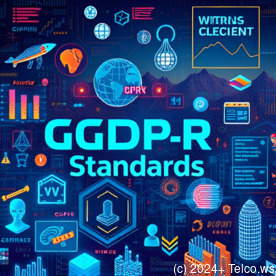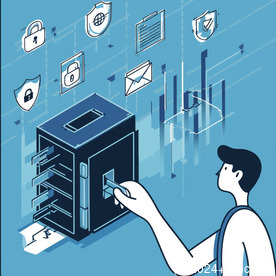- Outstanding Pros ready to help.
- Pay Crypto for Fiat-only Brands.
- Access Top Tools avoiding Sanctions.
- You can buy in total privacy
- We manage all legalities for you.


Comprehensive Guide to Firewall Security
In our increasingly interconnected world, securing networks against threats and unauthorized access has become paramount. Firewall security stands as a first line of defense in safeguarding digital infrastructure. This comprehensive article explores the facets of firewall security—what it is, its types, functionalities, best practices, and how to choose a firewall solution tailored to your needs.




What is Firewall Security?
Firewall security refers to the strategies and technologies employed to manage and monitor incoming and outgoing network traffic based on predetermined security rules. Think of a firewall as a security guard that filters traffic and only permits authorized packets to enter or exit the network. Firewalls can be implemented in both hardware and software and are crucial components of network security protocols.




The Importance of Firewall Security
With the rise of cyber threats—be it malware, ransomware, data breaches, or other malicious attacks—firewalls play a critical role in protecting sensitive information and maintaining the integrity of networks. They help:
- Control Traffic: Firewalls scrutinize and regulate traffic flows based on rules to obstruct unwanted access.
- Prevent Intrusions: Acting as a barrier, firewalls can detect and block potential intrusion attempts.
- Establish VPNs: Some firewalls facilitate secure connections for remote users through Virtual Private Networks (VPNs).
- Regulatory Compliance: Businesses often need to comply with industry regulations (such as HIPAA, PCI-DSS), and a robust firewall can aid in meeting these legal requirements.




Types of Firewalls
Firewalls are primarily classified into several types, each with specific functionalities, benefits, and use-cases. Below is a thorough exploration of the predominant types of firewalls:
1. Packet Filtering Firewalls
Packet filtering is the most fundamental type of firewall, which inspects packets in isolation and allows or blocks them based on set criteria like IP addresses, ports, and protocols.
- Advantages: Easy to implement and have low overhead.
- Drawbacks: Lack of comprehensive inspection usually makes them vulnerable to sophisticated attacks.
2. Stateful Inspection Firewalls
Unlike packet filtering firewalls, stateful inspection firewalls keep track of the state of active connections and make decisions based on the context of the traffic.
- Advantages: More secure than simple packet filtering; can recognize established connections.
- Drawbacks: More resource-intensive; can become a bottleneck if poorly configured.
3. Proxy Firewalls
Proxy firewalls act as intermediaries between users and the resources they want to access, effectively masquerading the client’s IP addresses.
- Advantages: Provides an additional layer of anonymity and enhances security by isolating users.
- Drawbacks: Can slow down access due to the filtering process and increase latency.
4. Next-Generation Firewalls (NGFW)
These firewalls combine traditional firewall technologies with advanced features like application inspection, intrusion prevention systems (IPS), and threat intelligence.
- Advantages: Provide deeper insights into network activity and are effective against modern threats.
- Drawbacks: Higher cost and complexity in implementation can deter some organizations.
5. Web Application Firewalls (WAFs)
Specifically designed to protect web applications from threats like SQL injection, cross-site scripting (XSS), and other exploits.
- Advantages: Tailored for web-based threats; effective at filtering malicious content.
- Drawbacks: Limited protection against network-layer attacks.




Firewall Functionality
Firewalls perform various essential functions to ensure security, including:
1. Traffic Monitoring
Firewalls constantly monitor traffic flowing in and out of networks, ensuring that any suspicious activities are flagged for further inspection.
2. Access Control
Administrators can define access rules, determining who can access specific resources and services based on user roles or other criteria.
3. Logging and Reporting
Firewalls maintain logs of traffic patterns, which are crucial for incident response and compliance auditing. Detailed reports can highlight anomalies and emerging threats.
4. Virtual Private Network (VPN) Support
Many firewalls provide built-in support for secure VPN connections, allowing employees to work from remote locations without compromising security.




Best Practices for Firewall Configuration
To maximize the effectiveness of firewalls, organizations should adhere to best practices such as:
- Perform Regular Audits: Regularly assess firewall rules and configurations to ensure alignment with current security policies and risks.
- Use the Principle of Least Privilege: Restrict access to only those resources users require for specific tasks.
- Keep Software Updated: Ensure firewall firmware and software are updated to guard against newly discovered vulnerabilities.
- Enable Intrusion Detection/Prevention Systems: This adds an additional layer of security, enabling swift response to suspicious activities.
- Implement Redundancy: Set up backup firewalls to ensure uninterrupted protection.




Choosing the Right Firewall Solution
When selecting a firewall solution, consider the following key factors:
- Network Size and Complexity: Assess your current and anticipated network architecture.
- Types of Threats: Determine which threats and vulnerabilities are most relevant to your organization.
- Budget: Evaluate the costs associated with implementation and upkeep, including hardware, software, and services.
- Vendor Reputation: Look for established vendors with a history of strong customer support and timely updates.




Competitive Pricing Offers
If you’re looking to secure your network with a top-tier firewall solution, we invite you to explore our offerings:
- Entry-Level Firewall: Starts at $750 per year
- Mid-Range Firewall with Advanced Features: Priced at $1,000 annually
- Next-Generation Firewall with Comprehensive Protection: Available for $1,699 per year
For comprehensive protection that adapts to your evolving security landscape, invest in a powerful firewall today. Interested in buying? As stated, the price for our Next-Generation Firewall with Comprehensive Protection is $1,699. Please proceed to our Checkout Gateway and use our Payment Processor to pay the indicated amount of $1,699 in favor of our Company, following the instructions. Once you have paid, please reach out to us via email, phone, or site with your payment receipt and details to arrange the Firewall Security Service. Thank you for your interest!



